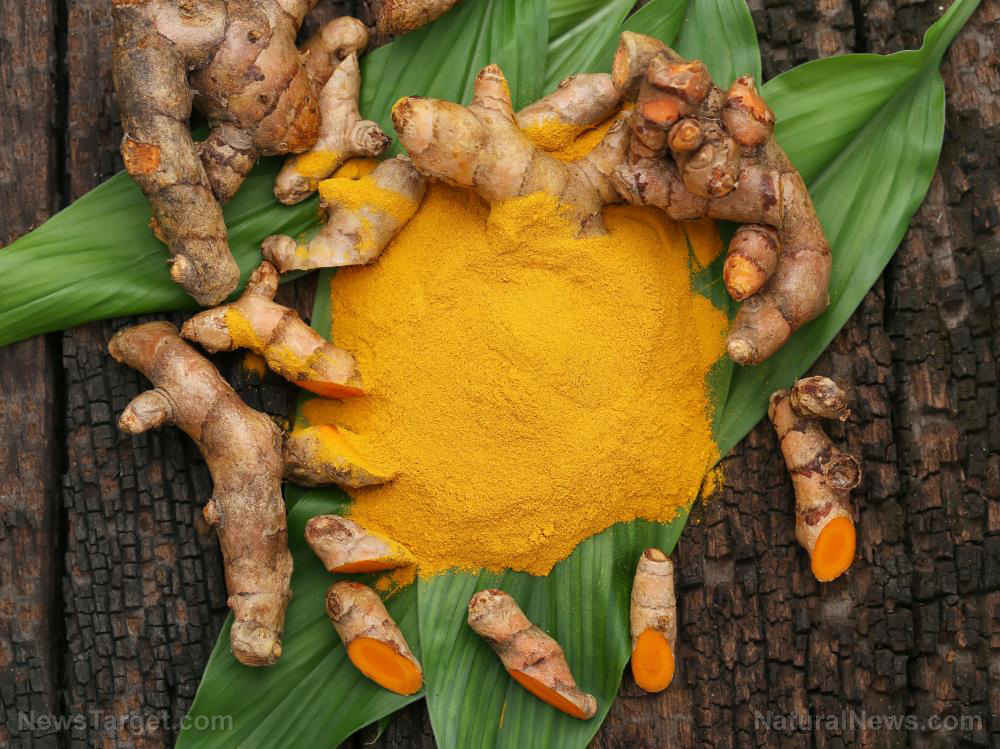Provide the best possible environment for your genes: Eat more turmeric
07/14/2019 / By Cassie B.

You might have heard about all the wonderful things turmeric can do for your health, but if you’ve got the genetic odds stacked against you in some way, like a family history of diabetes or cancer, you might be tempted to believe there isn’t much a spice can do for you. If so, we’ve got some good news for you: Research shows that your lifestyle and diet choices have a surprising degree of influence over your health, and turmeric in particular has a compound that can protect you from illness by regulating epigenetic expression.
Epigenetics encompasses all the factors that have an impact on your DNA, such as determining whether specific genes are turned on or off – which, in turn, will determine whether you develop a disease or not. If you have the particular genes or gene clusters that come with a genetic predisposition for developing a particular condition, the genes actually have to be switched on before they can be expressed and make you ill.
However, if you eat the right foods, you can essentially override this – and turmeric is one of them. It contains a compound known as curcumin, and its health benefits are impressive. Curcumin has a positive impact on the expression of genes, and it can help to prevent several types of cancer and various age-related diseases.
One big way it exerts this life-saving influence is by affecting the process of methylation, which controls gene expression. Methylation can contribute to the progression of illnesses like neurocognitive diseases, inflammatory disorders, autoimmune disorders, diabetes, and cancer of the prostate, lung and colon. By essentially tuning off the genes that cause these illnesses, it can help you remain free of diseases, even those that are hereditary.

Another way it can help prevent these diseases is via its anti-inflammatory properties. Inflammation is at the heart of conditions ranging from arthritis and digestive problems to cardiovascular issues, neurogenerative disease and cancer.
There are lots of great ways you can incorporate curcumin into your diet
If you’re wondering how you can get more curcumin in your diet, you’ll be happy to know that you’re spoiled for choice. Fresh turmeric root and turmeric powder both work well in many types of foods. Curry might be the most obvious choice, but you can also add it to sautéed vegetables and salad dressing. It’s great with rice and any type pf meat you can imagine, and it also works well mixed into smoothies.
Another popular way of consuming turmeric is in golden milk. All you have to do is blend some turmeric into the milk of your choice; a good ratio is ½ teaspoon of turmeric for each cup of milk you use. You can also add some cinnamon, honey, ginger, or maple syrup to taste. Don’t forget a pinch of black pepper!
Although it’s easy to add turmeric to your food, you need to know that its bioavailability isn’t the greatest. Adding black pepper can boost its bioavailability by 2,000 percent, so make sure you add a small amount to whatever you cook with this spice. It’s also helpful to consume it with a fat, which is one reason golden milk is such a great choice.
It’s not just turmeric that can help you override genetic predispositions to disease. An overall healthy diet, regular exercise, and avoiding smoking can also make a big difference. The research is clear: You have more control over your health than you think!
Sources for this article include:
Submit a correction >>
Tagged Under:
alternative medicine, cancer, curcumin, disease, DNA, epigenetics, food is medicine, gene expression, genetics, Herbs, herbs and spices, longevity, natural cures, natural medicine, prevention, turmeric
This article may contain statements that reflect the opinion of the author




















